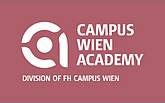Inhalt
- Introduction on agile development methods
- Deep dive into Design Thinking: mindset, process, phases, tools
- Introduction of a Design Challenge by a company partner
- Students run through a real Company Design Thinking project in teams
- Final presentations in front of the company representatives
Lernergebnisse
Students of this course know, understand and can describe the mindset, process and selected tools of Design Thinking.
Students of this course experience and analyze human-centered design by running through a virtual (mini) Design Thinking project.
Students of this course learn to analyse, reflect, visualize, generate ideas, build prototypes and give feedback in an international team setting.
Lehrmethode
Didactic setting – in class (face-to-face) and online teaching:
1,5 SWS / 3 ECTS (= 75 TU workload students) =
11 TU in class teaching (face-to-face)
1 TU exam (examination supervision by the lecturer)
63 TU distance learning (=workload students)
Presentational methods:
Theory input, partner company insights, Student coaching, joint reflexion.
Participatory methods:
Interactive workshop setting with synchronous and asynchronous phases.
Online visualization and brainstorming software ideaflip
Prüfungsmethode
Immanente Leistungsüberprüfung: The integrated course is assessed through formative assessment. By
awarding points during the integrated course (ongoing performance
evaluation + 80% mandatory attendance) and not just at the end
through a final examination, several advantages arise:
- The workload is distributed evenly throughout the semester.
- The assessment does not represent a snapshot.
- Teaching methods can be modified and adjusted as needed.
- Students take active responsibility for the learning process and receive
individual courses for action.
In detail, the course is assessed through the following partial
performance evaluations:
1. Assignments (75 points)2. Peer Assessment (10 points)
3. Active participation in the lectures (15 points)
The overall assessment of all partial performances will be
communicated by the lecturer in Moodle. The maximum achievable score
for the overall assessment of all partial performances is 100 points.
The overall assessment will be carried out according to the following
grading scale and will be communicated by the course instructor in the
students’ portal.
> 0 to 59 points => insufficient (5)
> from 60 points => sufficient (4)
> from 70 points => satisfactory (3)
> from 80 points => good (2)
> from 90 points => excellent (1)
Literatur
Markus Blatt / Emmanuel Sauvonnet (Hrsg.): Mit Design Thinking Innovationen entwickeln und umsetzen. 2. Auflage. Vahlen 2017
Unterrichtssprache
Englisch










